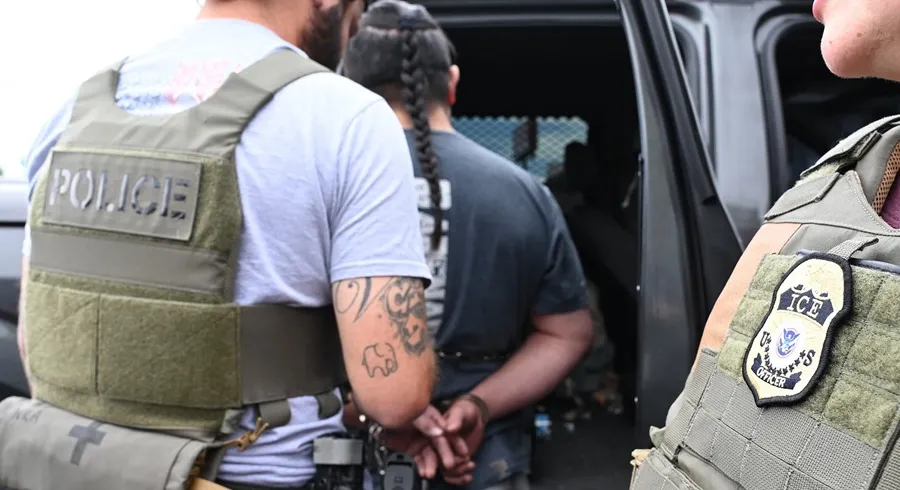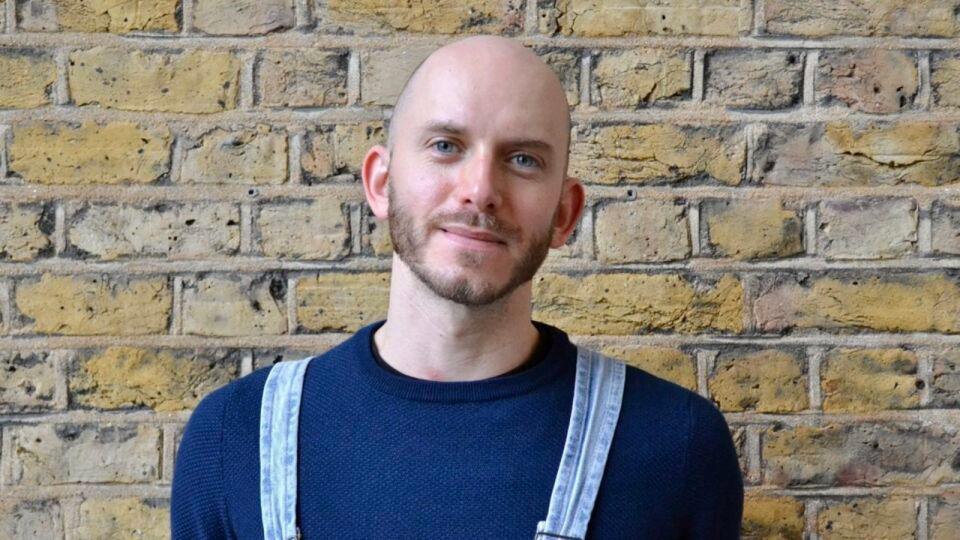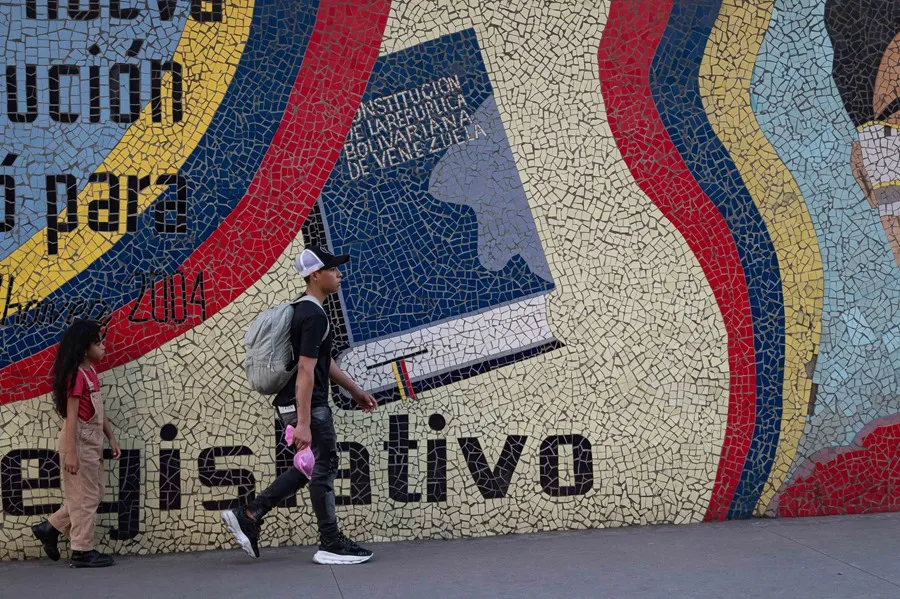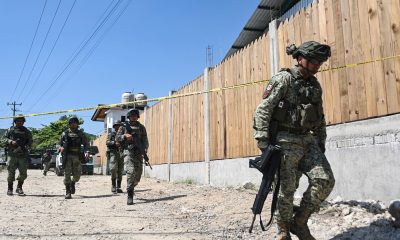International
Immigrants in Denver are afraid to take their children to school because of the raids

Migrant parents in the Denver area, the capital of Colorado, fear sending their children to school in the face of the new massive raids, while their school district undertook the first judicial fight in the country against the Trump Government to remove immigration agents from the classrooms.
Since February 5, Pedro and María, a Colombian couple, stopped taking their children to school in Aurora, east of Denver.
“We find blocked streets, armed agents in our neighborhood and people screaming and crying. They didn’t let us get to school,” the migrants told EFE.
“Since then, my children have not returned because they fear separating from us,” says Pedro, who, although he is a legal resident in the United States, prefers not to reveal his full name.
About a hundred alleged members of the transnational gang Tren de Aragua were arrested in the raid on April 5 in Aurora, a city east of Denver that was the epicenter of a national debate on security and immigration during the last presidential campaign.
Immigration and Customs Enforcement (ICE) raids on apartment complexes in the area intensified the sense of vulnerability among immigrants, including those with legal presence.
“Before we knew we had to take care of ourselves, but we never stopped taking children to school. Now it’s different. ICE can enter schools, and I don’t know if they’re going to stop me or my children. I’m afraid they’ll separate us,” Pedro confesses.
The fear of raids not only affects the mobility of immigrants, but also generates profound mental, emotional and economic consequences.
According to the American Council on Immigration (AIC), about 16.7 million people in the US live in families where at least one parent is undocumented, including six million child U.S. citizens. In the event of detention, these families can lose between 40% and 90% of their income within six months.
Last week, Denver Public Schools (DPS) sued the Department of Homeland Security (DHS) in an attempt to curb the presence of immigration agents inside and outside educational centers.
“Parents enroll their children in public schools with the confidence that they will be educated without fear of migratory operations within those institutions,” says the lawsuit.
The DPS demands guarantees so that students can attend classes without fear, since uncertainty is affecting school attendance and, therefore, the financing of the districts.
“The fear of school rounding is generating irregular and unpredictable attendance, with a direct impact on funds and school resource planning,” the legal document warns.
For weeks, Pedro and María have stopped attending community events and religious services.
“News and social networks increase anxiety. They say there was a raid here or that they are going to cut food benefits. I don’t know what’s going to happen. One wants to get ahead, but now I’m not sure my children have a good future,” María laments.
According to a report by the Migration Policy Institute (MPI), one in three Latino students in the US suffers from anxiety or depression due to the fear of immigration operations. Experts warn that this situation impacts the academic performance and emotional well-being of minors.
Meanwhile, Aurora Public Schools (APS) have implemented new security measures and expanded their communication system with parents, which could motivate Pedro and María to allow their children back to school.
However, the situation remains fragile. In some schools in the Denver metropolitan area, absenteeism has reached 80%, which could compromise school funds if students do not complete state exams.
“I don’t want my children to live in fear. I can’t give up. Like us, thousands of immigrants face uncertainty every day, but we continue to cling to the hope of a better future,” says Pedro.
International
Colombia: Search continues for missing limb of italian scientist found dismembered

Rescue teams and Colombian authorities continued their search on Tuesday for the missing left leg of Italian biologist Alessandro Coatti, whose dismembered body was found in the Caribbean city of Santa Marta.
Coatti, 42, was a molecular biologist who had been traveling through South America after working for eight years at the Royal Society of Biology (RSB) in London.
He had been staying in a hotel in Santa Marta since April 3 and was later reported missing. His dismembered body began to be discovered on April 6, when parts were found inside a suitcase abandoned near a football stadium in an area known as Bureche.
“We’re conducting the search along the riverbanks and in the water to identify possible spots where, due to the river’s current, the missing left leg might be located,” Karlotz Omaña García, director of the Magdalena Civil Defense, told The Associated Press. Despite covering a 500-meter radius, the limb was not found.
Authorities have not named any suspects or shared possible motives. A reward of more than $11,000 has been offered for information leading to those responsible for the foreign scientist’s murder.
Police continue to reconstruct Coatti’s final movements. According to Colonel Jaime Ríos, head of the Santa Marta Metropolitan Police, the Italian biologist arrived in Colombia in January and had visited several locations, including Medellín, before traveling to Santa Marta.
Security footage shows Coatti was in downtown Santa Marta the night before his body was found, the colonel added.
Santa Marta, a popular Caribbean tourist destination, is known for its clear beaches. Police believe Coatti may also have visited Tayrona Park, a protected coastal area located about 34 kilometers (21 miles) from the city center.
International
MPV Denounces Electoral Blockade as Secretary-General is Disqualified for May Elections

The anti-Chavista party Movement for Venezuela (MPV) denounced on Monday that it was “prevented” from submitting its candidates for the regional and legislative elections on May 25, elections rejected by opposition leaders Edmundo González Urrutia and María Corina Machado.
“MPV, being an active and recognized party in the National Electoral Council (CNE), was prevented from submitting candidates for the current electoral process,” stated the political group through a communiqué on X.
Additionally, the group denounced that its Secretary-General, Simón Calzadilla, was “suddenly disqualified,” as the opposition leader warned last Friday. He also explained that he attempted to access the CNE’s automated candidate submission system but, as he added, the portal showed that he was not authorized to create a user and submit the MPV candidates.
For the party, its “strong decision” to participate in the May elections “highlighted the true nature of this electoral process,” which it described as “extremely flawed.”
International
Maduro Plans Major Workers’ March on May 1st to Defend Venezuela’s Freedom

Nicolás Maduro, who swore in for a third term in January following his controversial re-election, called on Monday for the “working class” and the “armed people” to gather for a concentration on May 1st for peace, as part of the celebration of International Workers’ Day.
“Let’s have a powerful march of the working class, the combat bodies, and the Bolivarian National Militia in all the cities of the country, from end to end, working class and armed people in the streets shouting for peace,” said the chavista leader in a broadcast on the state channel Venezolana de Televisión (VTV), surrounded by military authorities.
He also stated that Venezuela is more armed than “ever” to “defend the sacred dream of a free homeland, the sacred soil of a heroic land, Venezuela.”
Maduro called on all military personnel to “stay in shape” with a “deployment capacity” and also to have “a very clear view of the entire national territory.”
-

 International3 days ago
International3 days agoVenezuela accuses Guyana of “warlike intentions” after UK defense deal
-

 Central America4 days ago
Central America4 days agoSpanish Ex-Congresswoman Calls for ‘Bukele-Style’ Security Policies in Europe
-

 International4 days ago
International4 days agoTrump Authorizes Military to Take Control of Federal Land Along U.S.-Mexico Border
-

 International3 days ago
International3 days agoNightclub Collapse in Dominican Republic Claims 226 Lives
-

 Central America2 days ago
Central America2 days agoHonduran Police Offer $135K for Tips Leading to the Arrest of Romeo Vásquez
-

 International2 days ago
International2 days agoMaduro Plans Major Workers’ March on May 1st to Defend Venezuela’s Freedom
-

 Central America18 hours ago
Central America18 hours agoPetro questions Ecuador’s vote, cites reports of military control and arrests
-

 International2 days ago
International2 days agoMPV Denounces Electoral Blockade as Secretary-General is Disqualified for May Elections
-

 International18 hours ago
International18 hours agoColombia: Search continues for missing limb of italian scientist found dismembered















